Pygmy goat care and maintenance tasks are very easy, compared to other goat breeds. They are smaller in size and it’s very easy to care for pygmies. Usually they are smaller in size and suitable as dairy, meat and pet goats.
Pygmy goats were originated from the Cameroon Valley of West Africa, and were introduced to the United States in the 1950s. They are very popular as pet goats than livestock animals, mainly for their calm and friendly nature.
They are easily adaptable to all climates around the world. They produce high amount of milk, compared to their body size and food consumption.
Pygmy Goat Care
Most of the domestic goats indulge in breeding within a fixed time, but pygmy goats can be bred throughout the year. Usually a male pygmy goat weights about 40 to 60 lbs and a female pygmy goat weights about 35 to 50 lbs.
Both male and female goats come with a wide variety of colors. You can find them in white caramel, medium caramel and dark red caramel.
Some pygmy goats can also be silver-light gray agouti, medium gray agouti, dark gray agouti, black with frosted points, solid black, and brown agouti.
Usually female pygmy goats have lighter color than the males. However, here we are trying to discuss more about pygmy goat care.
Basic pygmy goat care includes feeding, shelter, fencing, trimming and worming. Read more about every steps of pygmy goat care below.
1. Feeding
Feeding adequate quality feeds to your goats is very important. A regular diet of pygmy goats must include protein enriched foods such as grains, fresh greens and oats. You can fulfill the carbohydrate needs of your goats by feeding them whole and rolled grains.
For fulfilling necessary minerals and vitamins demand, you can feed your goats corn, oats, sweet feed and goat ration. Usually a pygmy goat will require about ¼ cup of grain daily.
Some people also recommend good quality alfalfa mix hay and molasses-free grain for the pygmies. You can use a trough for feeding your goats. Trough will help to reduce wastage of grains. And pygmies don’t eat soiled or dirty feed (unless they are starving).
So using trough for feeding will be very effective. For better benefits and good health of your goats, try to allow them to a wide variety of forages such as forbs, grass and browse.
Fescue, orchard and blue grasses are good for pygmy goats. Cloves, dandelion and wild lettuce are forbs, and also contribute to the pygmies health.
Pygmy goats also love browse such as blackberry, brushes, rabbit brush etc. Vitamin A and D are very essential for the pygmy goats. Green hay, green pasture, yellow corn etc. are enriched with Vitamin A. The sun provide the goats enough Vitamin D during summer season.
Sun-cured hay is the best source of Vitamin D, when the sun is not strong enough (especially during the winter season). However, along with providing sufficient nutritious food, the pygmy goats also need adequate supply of clean and fresh drinking water.
If possible, supply your goats slightly warm water during the winter season. This will encourage the goats to drink plenty of water. Change the water frequently and clean the watering pot regularly.

2. Shelter
Goat shelter constructed with raised wooden platforms is best for the pygmy goats. Usually pygmy goats like standing on higher grounds for a view-from-top experience, but they are not great jumpers.
They don’t like sleeping on the ground, they like living and sleeping on a dry place and raised platform. And without raised platforms, they are prone to acute hoof disorder.
Pygmy goats are smaller in size, so they require less space for living. Generally an 8″*6″ shed will be suitable enough for housing two adult pygmy goats. Keep good ventilation system in the shed.
This will help them to feel comfortable during the summer season, and also help to prevent various types of diseases and illnesses.
Ensure that the drafts are closed, during winter season. The floor of the shed can be of any type. Flooring can be concrete, wooden or made of clay. Most of the expert goat producer suggest clay as the best flooring system. A concrete flooring may be cold and damp during winter, while a wooden flooring is prone to rotting.
On the other hand, a clay flooring would not only provide the goats a natural ground, it would also help dissipate urine odor. So it is recommended to construct a thick layer of clay using gravel as the base.
And apply a new layer of clay after two years or so for renovating the flooring. Pygmy goats do not like getting their hooves wet or muddy.
So place pieces of bricks and wood on the ground, in the backyard where your pygmy goats would be frequenting (especially during rainy season).
3. Fencing
As we know ‘goats are good escape artists’. Pygmy goats are not an exception. So you have to make a strong fence around your farms area to keep the goats safe inside.
The fencing must have to be tall enough for keeping harmful animals such as dogs from straying into the vicinity of the goats. A 4 feet tall livestock fencing will be suitable.
It will also be better, if you can construct a pen with the fence so that the goats can move more freely. Don’t use barbed wire for making fencing for your pygmy goats (because they might injure themselves).
4. Hoof Trimming
Proper pygmy goat care also include regular hoof trimming. Usually goats with untrimmed hooves are prone to develop lameness, splayed toes or foot rot.
You should perform hoof trimming on a regular monthly basis. Hoof trimming after every 4 to 6 weeks is recommended for pygmy goats.
5. Worming and Vaccination
Timely worming will help to keep your goats healthy and productive. And it’s an important part of pygmy goat care. For pygmy goats, worming must have to be done 3 to 4 times annually.
For protecting the babies, pregnant goats are recommend to be worming before kidding and during the last month of the pregnancy. Always try to vaccinate your goats timely. Annual vaccination will help to keep your goats healthy and productive.
Vaccinate your pygmy goats against rabies, enterotoxemia and tetanus. Vaccination can’t provide 100% protection against any specific diseases, but it helps to prevent the diseases. That’s why goats require timely vaccination.
If possible, never separate the newborn babies from their mother and bottle-feed them. Naturally moms always take good care of their babies.
So, never separate the babies from their mom, unless a critical need arises for the kid’s survival. Never feed a wether with grains after it has been weaned.
Doing this will help the weaned goats to prevent from developing urinary stones. These are the common pygmy goat care system. Take some time and try to take good care of your animals.


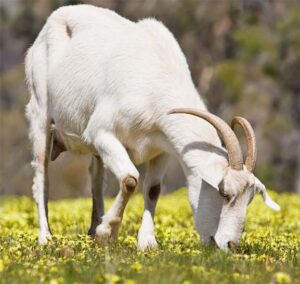
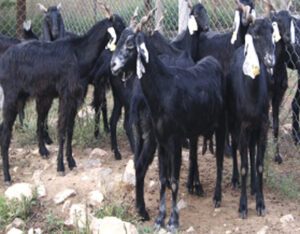
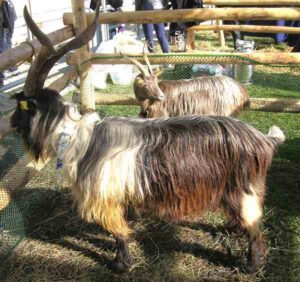
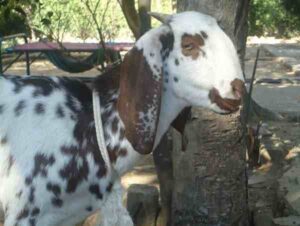
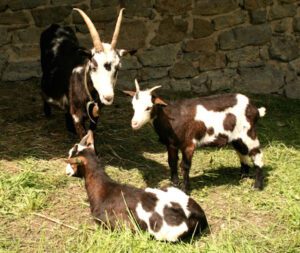
What wormer is best in Spring? Summer? Fall? Winter? I’ve used Safeguard, ivermectrin and ultra Boss. In horses wormers are rotated.